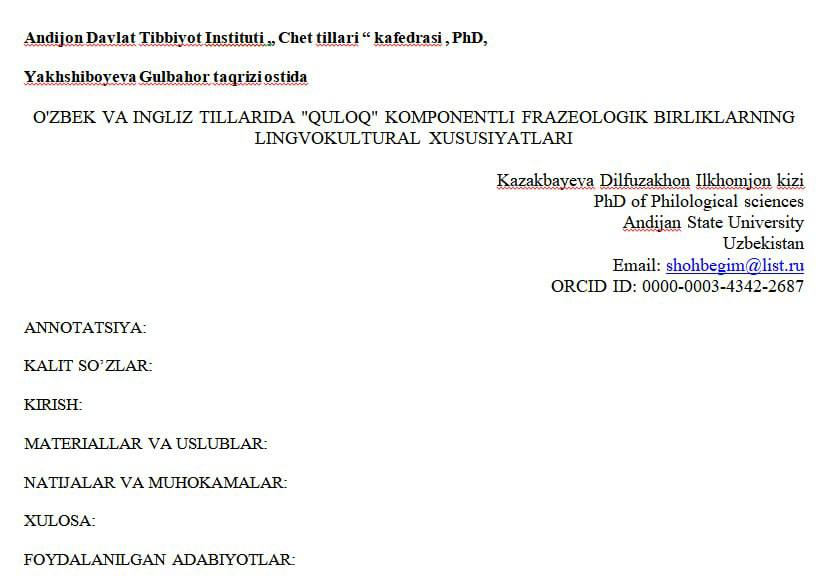THE ROLE OF USING SUITABLE METHODS AND ACTIVITIES BY INTEGRATING ERROR CORRECTION INTO ENGLISH LESSON
Keywords:
error correction, peer working, EFL classrooms, explicit and implicit methods, oral and written correction, and non-verbal methods.Abstract
The author of this article discusses methods and activities which can be helpful and suitable to work with students` mistakes appropriately and avoid discouraging students from progressing by not making mistakes. It also discusses a number of error correction types in details by giving examples and which methods are more suitable to what kinds of exercises and tasks
References
Amara, Naimi. “Errors Correction in Foreign Language Teaching.” The Online Journal of New Horizons in Education, vol. 5, no. 3, 2015.
Chapman, Kathy L., et al. “The Effect of Feedback on Young Children’s.
Chenoweth, N. Ann, et al. “Attitudes and Preferences of ESL Students to Error Correction”.
Mackey, Alison, et al. “Errors, Corrective Feedback and Repair. Variations and Learning Outcomes. “The Routledge Handbook of English Language Teaching, edited by Graham Hall, London, New York, Routledge, 2016, pp. 499-512.
Gass, Susan M., and Larry Slinker. Second Language Acquisition. An Introductory Course. New York: Routledge, 2008.
Writing: Teachers’ Beliefs, Practices, and Students’ Preferences. MA Thesis, Queensland University of Technology, 2011.
Inappropriate Word Usage.” Journal of Child Language, 1986, vol. 13, no. 1, pp. 101-117.














